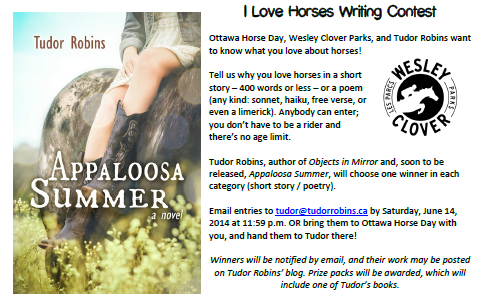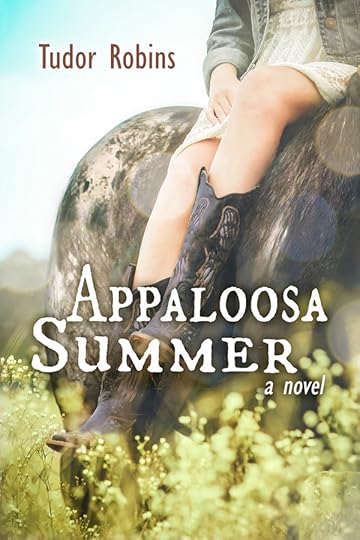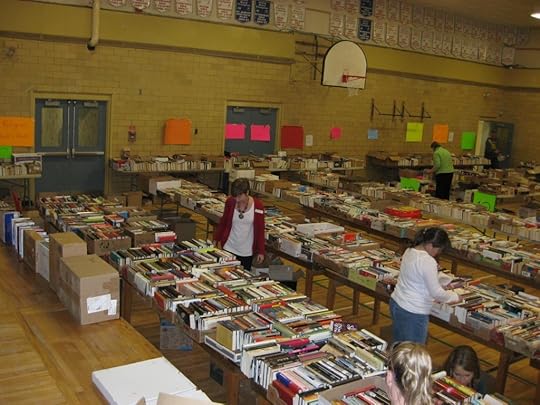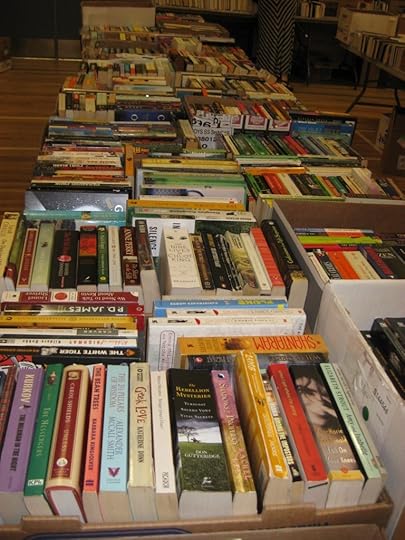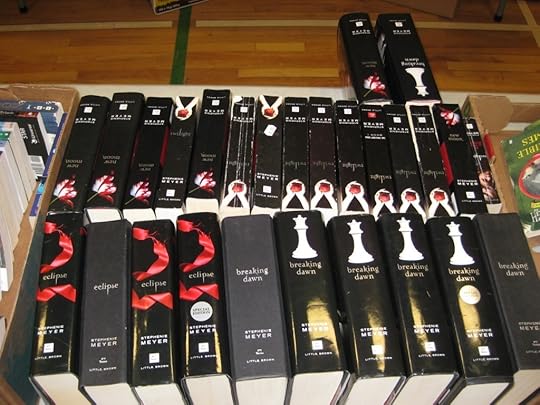Tudor Robins's Blog, page 26
June 10, 2014
E-Book Pricing
I’d love your feedback on this subject. I have pretty strong opinions on e-book pricing, but maybe I’m wrong. The publishing industry also has very strong opinions on e-book pricing, and Amazon appears to have very strong opinions on e-book pricing.
To the point where the US Department of Justice had to intervene in the question of e-book pricing, price fixing, etc.
So, we all have strong opinions on e-book pricing but, I think, the opinions that matter most are yours. Readers. Consumers. E-book buyers.
What is an appropriate price for an e-book?
What is an appropriate price for an e-book from an author you’re trying out for the first time?
What is an appropriate price for an e-book from an established author you love, and whose work you’ve been anticipating?
Here are my opinions – as a reader and as a writer.
I think e-books should DEFINITELY be cheaper than print books. You’d have to work hard to convince me otherwise. I’ve always felt this, and now, having produced my own book – with my own money – I’m even more convinced. Print books are much more expensive to create – right up front. You need a spine and a back cover – which you don’t need with an e-book. The interior formatting is much trickier. And then, of course, there’s all the paper and the printing and the physical delivery. They cost more.
I fundamentally believe e-books are not just paperback books delivered a different way. They’re a different product and people buy them differently and, in my opinion, they should be priced on their own merits – not tied to the print price. I think people value e- and print books differently – not even necessarily “more” or “less” but not the same.
The Appaloosa Summer e-book will be priced at $2.99 – at least to start. I think that’s fair. I feel good about that price. I feel like I’m definitely giving readers a good deal. And I still get a very fair royalty payment on that price.
The print book will be $9.99, which I also think is fair.
I think both prices are respectful of my readers, and both allow me to make royalties that I consider fair.
But that’s my opinion – I said I wanted yours. How do you approach e-book pricing / buying? What’s the most you’d pay for an e-book? Should e-book prices be higher? Lower? Do you value books less if you pay less for them?
Lay it on me – I’m really interested!
June 7, 2014
Self-Publishing Step-by-Step (5) – Partnerships
Self-publishing is sometimes referred to as “going it alone”. I’ve found that’s sort of accurate, but mostly not.
Just take, as an example, my post from last week on the Appaloosa Summer “team”. I really do feel like I’ve been surrounded and buoyed up by a team. And, I now feel like those people’s teams have become my team.
For example, ever since posting the APS cover on Facebook, I’ve been overwhelmed by the response and support from Kacy Hurlbert Todd’s (my cover photographer) friends and family in Georgia. I have all these new FB friends in Georgia! It’s amazing and, once again, I feel so blessed to have found Kacy’s beautiful work (and found her to be a beautiful person).
So, if you self-publish, there’s no need to be alone.
Which is what brings me to the point of this week’s post – partnerships.
It came home to me how important partnerships and networks are when I first accessed Amazon’s Author Central page. This is a very cool feature whereby authors can view their current rank, as well as their sales over time, geographically, etc. Unfortunately the geography is only for the US, but, still, it showed me some interesting patterns. Essentially, everywhere I know somebody in the states, there was a sales hotspot.
My parents winter in Florida – Florida was shaded dark on my sales map. I have two friends in Missouri. Ditto. This, to me, was a very real and visual illustration of the power of individual people to help get the word out.
So, I think any opportunity to form a partnership is a great one. I have two such partnerships to tell you about right now:
(1) Horsing Around Designs - a great Maritime-based business run by Jennifer Roos. Jennifer and I are both small entrepreneurs trying to get noticed in this world, and we both love horses. When I suggested we could help each other out, Jennifer said “yes” and I’m going to let her take over the story:
“Love it or hate it, Facebook is a powerful connector. Thanks to a comment posted by a mutual j-school friend, I’ve reconnected with Tudor Robins. Tudor and I knew each other as horse crazy kids showing ponies in the Ottawa area. Our paths crossed again when we ended up in the same journalism school in Halifax. And now, even though it’s been 18 years since I’ve seen Tudor, our common interests – horses and writing – have brought us together again. Tudor is an Ontario-based author, sharing her love of horses and word skills with a younger generation through her books Objects in Mirror and the upcoming Appaloosa Summer. I’m a New Brunswick-based freelance writer, photographer and saddle pad maker (sounds a bit like a nursery rhyme). Early on in my writing career, a talent for making crafts turned me into a DIY newspaper columnist and photographer. This led to a published book of crafts and a five-year stint as Yahoo! Canada’s craft expert. Like Tudor, I didn’t outgrow horses and these days I combine this obsession with my crafty side to create custom saddle pads for fellow horse lovers. And now because of a mutual love for horses, writing, and a Facebook comment, I look forward to a partnership with Tudor. I’m excited to introduce Tudor’s books to the young horse lovers on Canada’s East Coast and I’m grateful that she’ll show off and promote my saddle pads to the equestrians in her community. It’s a small world.”
(2) Kindred Farm – I so admire Tanya Boyd’s efforts to take care of horses in need. It’s one thing to rescue a cat, or a dog, but rescuing horses takes particular time, effort, commitment and money. That’s why I’d like to bring attention – and some money – to her efforts by declaring that I’ll contribute five per cent of my royalties on every copy of Appaloosa Summer I sell for the first six months, to Tanya’s Rescue & Rehabilitation program. It’s not riches, but it’s something, and I hope to be able to do more in the future.
I also hope to be able to form more partnerships in the future. One of the fun parts of “going it alone” is I get to make all my decisions, so I can form any partnerships I like!
June 6, 2014
Welcome Kitchissippi Readers!
If you’re visiting this page, it’s probably because you read the Kitchissippi Times story about my upcoming novel, Appaloosa Summer (APS). (Either that, or you’re one of my regular readers – I love all of you, too!)
This is a chapter that was deleted in the very last round of edits we did on APS. I still loved this chapter, so I decided to share it with readers for free, as an example of the setting, characters and tone in the book.
If you like it, please click here to sign-up for my newsletter, and be one of the first to know when APS is released.
Thank you for your support – the Kitchissippi community is an amazing one! To read the entire chapter, please click below.
May 30, 2014
A Love Letter to Amazon
Dear Amazon,
I thought it was about time to write to you. I know you’re big and strong, and I’m pretty sure you can take care of yourself but, still, it’s hard to have people write nasty things about you every single day.
I’ve noticed you’ve been keeping quiet, and not lashing back at the things that have been said about you. Since most of these criticisms seem to be founded in emotion and hurt feelings, I think your strategy of not responding is probably best. Still, it would be nice to see some more facts, and balance in the discussions out there.
In my opinion, there are two general truths that seem to be driving the attacks on you:
(1) Change is often hard. You have driven change. There was a group of people for whom the publishing system, as it used to be, worked very well. There were rules, and everyone played by them – even the unwritten rules. There were things that “weren’t done”. There were gatekeepers who got to decide who would be published and how much they would be paid. Those let into the gates were supposed to earn their keep. They shouldn’t expect much for their first, or second, book but, eventually, if they hung in there and kept publishing books, they might be rewarded a little more.
I get how this worked if you were a big publisher. I also get how this worked if you were one of the writers who made it through the first dozen, or so, layers of hoops to be jumped through. I can see why change would be mystifying – “why fix it, if it ain’t broke?” – and maybe, even scary.
The thing is, though, those people represent about one per cent of people who want to make a living from publishing (I made that number up, but it’s not far off being right).
Amazon is letting the other 99 per cent try to make a living at publishing if they so choose. I get that change is hard for some of you, but THIS ISN’T ABOUT YOU. Sorry.
(2) People like black and white stories. So, a couple of decades ago, it was “box stores bad”. Chapters, Borders, Barnes & Noble = evil. They are killing little book stores, they are hurting publishing, they are destroying the literary world as we know it! Now, however, suddenly there is much sadness that Borders is gone. There is much fear that Barnes & Noble will follow. Kobo (Chapters’ ebook version) is much-loved and preferred to … EVIL KINDLE FROM EVIL AMAZON. Yes, that’s right Amazon – you are the new hated entity. YOU are destroying literature. You are big, and bad, and nearly a monopoly! It’s simple, and easy, and right to hate you. Right? Right?
Or maybe not … because you are giving voice to the tiniest of tiny people. The most powerless of writers. The start-up local writer who really just wants to create a nice-looking book about the history of her neighbourhood, without breaking the bank, and have it accessible for others to buy.
I can’t figure out why people who love local bookstores, and blame you for their demise, don’t also love local writers. And, if they do love their local writers, many of us can only survive thanks to you, Amazon.
Some other facts that nobody seems to be mentioning, Amazon (and I don’t know how you resist), are:
- You pay us writers so well. We’ve never dreamed of keeping so much of our own money. You empower us, Amazon. You tell us the honest truth – you won’t sell our books for us, we’ll still have to do most of the work of creating, and promoting our own work, and, in recognition of that, we should keep much higher royalties. Thank you.
- You are a business, like every other business. You have a right to make money. You have a right to sell items as you wish. You are criticized for pricing books too low – it’s complained you are trying to undercut the competition. You’re criticized for pricing books too high – apparently you’re trying to keep people from buying certain books. The interesting thing about that argument is that you’re pricing these books at the publisher’s recommended retail price. If the price is too high – and it may be – that pricing decision was made well before you got the books and it was printed right on the covers.
- These people complaining about you throwing your weight around are the hugest of the huge when it comes to corporations. They are international and massive. They are powerful in the extreme. If they hate big, I don’t know how they can stand themselves.
Sorry, Amazon, this got to be a long letter. I really just wanted to say no, you’re not perfect, but I’m so glad you’re here.
You let me sell books all over the world. You tell me when and where they’ve sold. Even though you don’t promise to sell my books for me, you do offer neat promotion opportunities should I choose to take you up on them.
And don’t get me started about what it’s like to be an Amazon customer – you get last-minute gifts to me on time! You are the great general store in the ether – you have everything I want, and I trust your service.
I like you Amazon. I don’t know how much that means to you. I know I’m small. I’m tiny, really. And that’s exactly why I like you.
And the last reason I like you? If we decide, in a few months we don’t like each other, either one of us can just walk away. Good-bye! No lifetime commitments here – you don’t take all my book rights for time immemorial, and I appreciate that.
So, for now, this love letter will stay up. If we have an amicable split it might come down. But I have faith we’ll have a good relationship for a while.
Keep your chin up, Amazon.
May 29, 2014
I Love Horses Writing Contest
I’m really looking forward to reading the entries in the “I Love Writing Contest” I’m holding in conjunction with Wesley Clover Parks and Ottawa Horse Day.
I’ll be at Ottawa Horse Day, at Wesley Clover Parks (401 Corkstown Road) on June 7, from 11:00 to 4:00 to answer questions about the writing contest and give any advice I can. Hope to see some of you there!
May 28, 2014
Introducing the Appaloosa Summer Team!
It’s getting busy around here … busy in a good way but, still, really busy. So, while I have a few minutes today, and before it gets away from me, I’d really like to introduce you to the team who is bringing you Appaloosa Summer.
Each and every one of the people named here has been professional, engaged, committed, and given much more than I actually paid them for.
Best news of all – you could hire them (or other dedicated, professional people like them) to work on your book too!
So, without further ado, here is the credit list that appears in the front of Appaloosa Summer:
Editor: Hilary Smith
Proof-reader: Gillian Campbell
Cover photograph: Kacy Hurlbert Todd / Boss Mare Photography
Front cover design: Allie Gerlach
Spine / back cover / interior design: Cheryl Perez / You’re Published
Website: Lynn Jatania / Sweet Smart Design
Author photo: Debora Dekok
Just before signing off, I’d like to say a little more about Hilary Smith. I first got to know Hilary (as many writers did) as the writer of the hilarious, insightful and generous INTERN blog. I was so impressed by her thoughts and analysis on books and writing, that I got her to do a very early critique of APS – we’re talking years ago. It was excellent, and motivated me to remove an entire story line, leading to roughly the book as it is now (very roughly!).
In the meantime I asked Hilary a few writing / publishing questions, and she always answered quickly and helpfully. Then, Hilary got a book deal! A major book deal. And it was kind of cool, because her book, Wild Awake, (which, by the way, has what some consider to be the best YA cover of 2013) came out at exactly the same time as OIM, and we ended up on the CCBC’s Best Books for Kids and Teens together, and I was happy for her.
So, when I decided to self-publish APS, and I knew I’d need a kick-ass editor, guess who I emailed? When Hilary said yes, was when I truly believed I could do this project, and do it well. It was after she agreed to edit the book that I felt confident enough to officially announce that I would publish APS myself. I knew it would be as good a book as possible with Hilary as my editor.
Well, Hilary did not disappoint. In fact, she kicked my ass harder, and more times, than I ever expected. We did two complete overhauls on the manuscript before going into line edits. She was never shy to make more suggestions, call me out on more things, question character motivation and action. She told me she was only doing it because she knew I could handle it. So I did. Even Hilary’s line edits were insightful and, although that final portion of the re-write was small compared to the two previous ones (17 and 11-page editorial letters respectively), even at the line edit stage Hilary was pushing me to make the story better and tighter.
I don’t think editors get enough recognition in this game. On most traditionally published books there will be credits for photographers and, usually, cover designers, but that’s often about it. Unless the author chooses to mention the editor in the acknowledgments, you wouldn’t know who edited the book.
I was determined that my editor, proof-reader, etc, would have proper, official, credits in the front of the book and, now, by publishing those credits here, I hope those who worked on the book will know how much I appreciate them.
Thanks guys! Or, I should say, girls! It wasn’t planned out that way, but that’s how it turned out.
May 22, 2014
Self-Publishing Step-by-Step (4) – Proofreading
… is it worth it?
Absolutely, completely, and in every way.
I know it’s tempting to skip it. I get it. If you’re self-publishing, you’ve already paid an editor (at least, I hope you have), and you’ve paid, or are facing, dozens of other costs. You’ve read and re-read your manuscript about forty-seven times and you know you’ve been careful. You’re sure it’s clean. You’ll read it over, one last time, and catch all the leftover mistakes.
Don’t kid yourself. You’re human. You will never catch all your own mistakes – the ones that have been there during the last forty-six reads, and have become so ingrained you don’t even see them, and the ones that just crept in during your very last revision, where you’re sure you did everything right, but you were tired, and you were keen to get the changes done.
Why should you care?
My kids and I are currently reading a book in a very successful series, from a well-known Canadian children’s publisher. It’s a great story. Unlike some of our read-aloud books, reading it isn’t a chore – the character development is good, the setting is interesting, and it’s well plotted. But it’s riddled with tiny errors a good proofread would have caught.
Here are just a few examples within a few pages of each other (and this is representative of the entire book):
- P.187 – “eighty kilometres” (written out)
- P. 190 – “80 kilometres” (number in digits)
- P. 190 – “the same threat that Elliott always used again Webb” (should be “against”)
- P. 196 - top of the page a character referred to as “Jan” – halfway down the same page as “Jana”. Elsewhere in the book she’s “Jana”
You might think these are no big deal. I still understand the story. I still know “Jan” is “Jana”. But I had to stop, and think, and ask myself “Do they mean ‘Jana’?” Especially reading aloud, little details like “again” instead of “against” can break up the rhythm of reading.
These mistakes pull the reader out of the story.
They also – and maybe this is just me, because of the work I’m doing on my own book – make me feel like corners were cut. Like there’s some sloppiness. Like the author put tonnes of hard work into weaving a great story, and then some of the details are letting it down.
If you decide to self-publish, it’s even more important not to be sloppy like this because people like to accuse self-publishing authors of putting out books that aren’t ready – that aren’t polished.
Prove them wrong. Hire a proofreader. It will be worth it.
On Thursday I printed off the “final” version of my manuscript and gave one copy to my proofreader, and kept one for myself.
I read it, meticulously, over the long weekend. So did she.
I entered all my changes on Monday. There were quite a few. I figured the money I was paying to the proofreader was really just going to be for peace of mind.
Nuh-uh.
She found a number of things I skimmed right over. Stupid, little, embarrassing mistakes.
I figure when all the calculations are done, I paid her about seven dollars per mistake she found. That is SO worth it.
If someone showed me some of the truly ridiculous errors I would have left in my book without that proofread, and then asked “Would you pay seven dollars to remove these?” my answer would have been “Oh, yeah!” No doubt.
Except that still wouldn’t take away the first impression of all those people who would have read the book and seen them. They would have thought my book was sloppy. Their reading experience might have been interrupted. Seven dollars after the fact doesn’t fix that.
So, please have your work proofread, and if you don’t have a good proofreader in mind, ask me! I’ll hook you up with mine …
May 15, 2014
The Cover!
I’m so, so happy to be able to share it with you! I owe a world of thanks to Kacy Hurlbert Todd of Boss Mare Photography, for taking this beautiful image, and Allie Gerlach, for turning it into a book cover.
The cool thing is, if you really like the image, you can go to Kacy’s site and buy the original in one of many, many formats. Or you can look through her other amazing work, and purchase any of it!
So, without further ado, here it is:
May 9, 2014
The Value of Biting Your Tongue
This post was actually scheduled for last week. Then I got all riled up about something stupid somebody said online, and I wasted a bunch of time writing a post about that stupid thing – some of you might have seen it; it was up very briefly here – then I realized writing rebuttals to stupid things people have said usually leaves me feeling like I need a shower, and so I took it down.
And wished I had followed my own advice, and just put this post up as planned.
I don’t want to address stupid things people write on the internet anymore. I don’t have enough time to do that. And so, I’m going to offer one, final, opinion on things people write, and then move into my post.
(1) Lots of people say lots of dumb things on the internet. Far more people say far dumber things in the comments.
(2) If you’re writing something on the internet, and you’re about to say “All …” and then state some sort of fact / opinion, you’re probably about to say something stupid. For example, “All agents …”, “All publishers …”, “All self-published books …” – you get the picture. There is no such thing as “All”, so avoid making yourself look ignorant, and get more specific / do some research / think twice, etc.
(3) If people write things that are untrue, the real world will prove them wrong far better than any comment, or retaliatory post anybody else can write. So go ahead and say what you want about Amazon, or e-books, or self-publishing authors. Time will prove you right, or wrong, and it doesn’t matter what I say about it.
Now, onto the original post about being professional with regards to what you say / write:
I can remember, several times before OIM was published, trying to imagine 500 people reading my book. It seemed like a huge amount, if I thought of them all in one place, together, staring at me. Well, now quite a few more than 500 people have read my book. And some of them visit this blog. And follow me on Facebook. Etc. So, the question of how I portray myself professionally becomes even more important.
Sometime after that, I decided to publish my next book on my own. Which just added another level to my awareness of branding / image / working professionally. I’m my own business now. My book is me.
The main conclusion I’ve drawn is that the more license I have to write – and the more people read my writing – the more careful I have to be with my words.
This applies, of course, in the books I write. I have personal guidelines for what will, and won’t, be in my books. The f-word is one that won’t be in my books – at least not my YA books – at least not now. (This is probably only half for the reason you think – yes, I think it crosses a line – but, also, I fear, for me, throwing in an f-bomb would be lazy writing. I’d rather work harder to find a better way to describe my character’s frustration, anger, etc. … but I’m digressing; this is a discussion for another post.)
It also applies to the words like these I’m typing right now – words that appear on FB, or on my blog. I feel strongly about many subjects and, sometimes, it’s tempting to let loose with a rant. Sometimes I just want to write a long list of pet peeves. Some people do this, and it works for them, but it’s not right for me. It goes against the image I want to cultivate. I want to be positive. I want to address issues strongly, but would rather offer solutions, than complain about problems. (SEE ABOVE!)
I’m not a saint. Not at all. Sometimes, in my publishing journey, something happens to me, and I want to tell all of you about it. “Hey, can you believe this happened? Can you believe how inept / backwards / incompetent / unfair this person / entity is?” It’s so tempting sometimes. I know lots of you would support me. You’d say, “No! I can’t believe it! Wow!” But the words would be out there – negative words – and, as much as I believe I’m right, they’d be from my side only, and I would never be able to completely take them back, so I sit on my hands and don’t write them.
There’s also the whole problem of tone, and misunderstanding, and miscommunication, that happens on the internet, and comments and reviews seem to really bring this out in people, so I try to avoid that too. Joe Konrath had a good post on that this week.
And there are also the words I use in my more private correspondence and my personal exchanges with other people. BE CAREFUL WHAT YOU SAY. You can’t take it back. You really can’t. I don’t care how many people say “forgive and forget”; in my experience you can decide to forgive, but you can’t decide to forget. We’re biologically programmed to remember things that hurt us – for example we wouldn’t survive long if we forgot that big animals with long teeth and fangs might bite / kill / maim us – so once something is said, it will always exist.
And, yes, personal experience is prompting me to write this. I’m thinking right now of a couple of instances where somebody lashed out – said or wrote something very strong to me, which demonstrated either factual errors, or that they didn’t have all the information they needed to say what they were saying. It was hard to receive these messages. It was even harder not to reply. Not to say, “Yeah, well you don’t know this part of the story!” Not to lash back.
But – deep breath – it wasn’t worth it. It didn’t matter that much. I imagined the correspondence being reviewed by an outsider after the fact, and thought about whether I wanted to be an escalator, or the person who brought it to a close with a polite good-bye. It’s hard to be the polite good-bye person. It’s not always fun. Sometimes it feels unfair, and like you didn’t get your say …
… when that happens, as Joe Konrath says, just “Have a beer, and talk to your best friend.”
I sometimes regret what I write but, fortunately, not that often. And when it’s hard to bite my lip, or smile and turn away, I try to keep the big picture in mind. How would I feel if these words were attached to me forever? If I always had to own them?
There’s peace of mind in being careful about what you write and, in my opinion, there’s also professionalism in it.
May 8, 2014
Book Bonanza!
The Broadview Book Bonanza is a long-running fundraiser / community event / major opportunity to recycle, which has been going on at Broadview for a LONG time. I wish I could tell you exactly how long, but I can tell you I won a Book Bonanza Poster contest when I was in grade seven at Broadview … so do some math!
If you love books, the Book Bonanza is, well, a bonanza of books. Some beautiful, some ancient, some barely read, some much-loved.
You can always tell when a book’s been a book club selection – there will be a pile of them for sale at the Book Bonanza.
The doors open to the public at 4:00 p.m. today, but I was in the gym, doing pizza, and watched as teachers and volunteers wandered between tables and said, “Oh, this one is great!” and “Have you read this?” It’s book sharing at its best.
Here’s what the Book Bonanza looks like from my perch on the stage with my pizza boxes:
Our principal is in this picture, browsing the book selection. Here’s a close-up view:
We’ve had a running joke in my house – because our school community was so generous in purchasing Objects in Mirror, we’ve been trying to guess how many copies will show up at this year’s Book Bonanza. I was in sorting teen books yesterday, and I could only see two.
I can’t decide whether to be happy that so many people seem to have held on to their copy, or sad, because the picture below makes it quite clear that the more books you sell, and money you make as an author, the more of your books will be at the Broadview Book Bonanza. I’d take Stephanie Meyer’s success any day!

